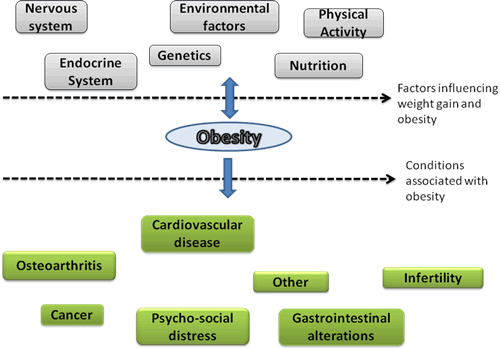Why lose weight and how to do it correctly?

Why lose weight; the case of fat
Some people may have their individual and personal reasons for why they want to lose weight. Others may think “what is all the fuss about” and “why does it seem that being slim is so important”. To this point we can say, being slim is not important, but being healthy may be. To weigh within an optimum range and follow a ‘healthy balanced diet’ can be argued that it is a good way forward.
One could argue that by understanding how foods and/or how the body works, can help us to make sense of these confusing ideas about diet and weight loss. This article will look at the basic principles in relation to fat and dietary modifications which can optimise health.
What is fat?
In very simple terms food gets processed by the body and is broken down in order to be used as energy, and as building blocks for important molecules. These building blocks can be used for producing hormones, for the nervous system, in making blood cells, new muscle, skin, bone and so on. Foods we consume, contain fat (also called lipids), carbohydrates and protein, amongst others. Apart from consuming fat from our diet, when we consume more calories than the ones we use, part of it is stored as fat in the adipose tissue, in the muscles and the organs.
Fat is vital for the body. It is needed for things like building the membranes of cells, to aid in absorbing fat-soluble vitamins, and producing hormones. Adipose tissue in itself is considered to be a gland which produces some important regulatory hormones such as ‘leptin’.
Why worry about it?
Fat belongs in the category of high energy density foods (in simple terms high calories), and overconsumption of it in our diet can contribute in overconsumption of excess calories. As a result, the presence/accumulation of excess fat in the body and weight gain can lead to overweight and obesity. The effects of obesity on health and general wellbeing have been well documented and it has been related to causing or exacerbating a number of health problems. Obesity which is classified as a chronic disease is influenced by a number of factors; these can be seen in the figure below.

Figure1. Factors influencing weight gain and obesity and conditions which are associated with the presence of obesity. These elements can be interrelated and influence each other, creating vicious circles.
Overconsumption of some fats, with or without the presence of overweight and/or obesity, has been associated with increased risk of cardiovascular disease, cholesterol, asthma and inflammatory diseases such as Crohn’s disease and eczema.
A point to raise once again is that being slim does not necessarily guarantee a free pass to risk free health. The diet and lifestyle one follows can influence things such as levels of blood cholesterol, blood lipid content, or body fat percentage (in relation to free-fat mass), which are all factors which increase risks for different conditions and diseases.
Distribution of fat in the body (which part of the body is stored) can be an indicator of cardiovascular and metabolic changes. Studies have looked at the abdominal fat and suggest that the increased presence of abdominal fat may be linked with detrimental cardiovascular changes, and increased risk of metabolic syndrome.
How to lose weight correctly?
Although fat has been demonised from time to time for its bad effects to health, it is a necessity for our body. Some weight loss tips to follow:
1. Do not aim to achieve 0 body fat percentage.
In reality that would be impossible, unless in extreme cases of malnutrition and/or anorexia. The World Health Organisation (WHO) has made recommendations on the total body fat percentage and these range from 21% – 36% for women and 8% – 25% for men. These values are age adjustable and are only guidelines. Being ‘under-fat’, depending of the severity, can have detrimental effects to general health and biological processes.
2. Avoid aiming to achieve 0% fat intake in a diet.
It is a common belief that if we do not consume any fat in our diet it will be healthier and most of all will lose weight faster. Some studies indicate that diets which are very low in fat (< 15% fat) and high in carbohydrate, can lead to increased blood lipid content (hypertriglyceridemia) and increased cholesterol. As mentioned above, these are factors which are related with high risk of disease. In addition, some studies suggest that in some ways the body ‘copes’ better with processing fat rather than carbohydrates.
3. Concentrate on quality.
Fats are categorised according to their chemical structure. The most common forms of fats in our diets and seen on food labels are: saturated, unsaturated and in the recent years trans fats.
Saturated fats are found in animal and dairy products e.g. beef, cheese, cream, and have been associated with increasing the risk of development of cardiovascular disease and other conditions. However, saturated fats are believed to be more natural compared to trans fats. When saturated fats are consumed in moderate quantities as part of a healthy balanced diet, they do not pose a risk to health in most people. In addition, in some occasions (e.g. France in the 1970’s) although there was a high consumption of saturated fats in the diet there was a low risk of cardiovascular disease.
Unsaturated fats include monounsaturated i.e. olive oils; polyunsaturated such as omega-6 (i.e. vegetable oils) and omega-3(fish oils). High levels of omega – 6 in our diet have been linked with inflammatory states whereas omega-3 fats are considered to have anti-inflammatory properties.
Trans fats are mainly found in margarines, hydrogenated vegetable oils (also when heating oil in high temperatures e.g. frying), and processed foods such as crisps. The body finds it hard to process trans fats, and can have toxic properties. Trans fatty acids in the diet do not have a beneficial effect on health.
4. Make the changes in your diet which optimise your health.
For example replace vegetable oils and margarine with olive oils, and crisps with a healthier snack. Opt for a mixed diet which has moderate amounts of fat, protein and carbohydrates. Replacing fats with large amounts of carbohydrates is not recommended as a healthy option.
5. Calories do count.
Calories are not the end to all means, but they do play their role in weight gain when they are over consumed chronically. As mentioned earlier fats are high calorie density foods. Even if there are fats which provide healthier options be aware that they do contain a high amount of calories. I am not a believer of religious calorie count but be aware of what or how much food is consumed for a diet plan to stand a chance. In moderation is the answer.
-
Can You Really Lose Weight Fasting
Let’s face it, if you’re on a mission to lose weight
-
Hca And Weight Loss
In the United States , it has been revealed that about 65% of the adu
-
Lose Fat By Dieting-facts-benefits And Drawbacks
Dieting looks as if the reachable approach to weight loss for many. T
-
Best Weight Loss Tips For Men
Having a healthy body and mind is the right way to enjoy a healthy li
-
I Have No Time! and Other Workout Excuses, Busted
I dont have time today. Busy day tomorrow? Make sure your gym bag is
-
Shrinking those fat cells Part 1
Shrinking Fat Cells Tom Venuto of Burn The Fat Feed The Muscle h
- DON'T MISS
- How to Perform Self Hypnosis
- Lose Weight Quickly And Safely With These Tips
- Successfully Lose Weight And Keep It Off
- How to Lose Water Weight Fast
- Weight Loss Tips And Hints - Three Of The Finest Revealed
- How To Lose Weight Naturally: 3 Tips For Women
- Drop Those Pounds With These Great Tips
- 300 Weight loss Tips
- Maximize Your Overall Weight Loss With These Ideas
- Weight loss supplements




